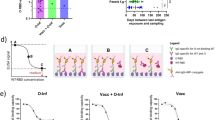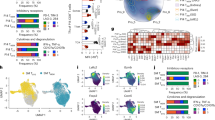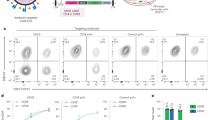Abstract
We have described a novel gene transfer system, in which replication-incompetent, T antigen-deleted simian virus-40 (SV40) is used as the transduction vehicle. We report here successful immunization using such an SV40-derived viral vector. Hepatitis B surface antigen (HBsAg) cDNA was cloned downstream of two tandem SV40 early promoters to yield a T antigen-deficient SV40 derivative, SV(HBS). Cultured TC7 cells were exposed to SV(HBS), and expression of HBsAg was detected 24 h later by Northern blot and RT-PCR analysis. Immunochemistry and Western blot analysis were also performed 24 h after infection to detect expression of HBsAg. Once it was ascertained that we could express HBsAg in this way, we used SV(HBS) to elicit anti-HBs. SV(HBS) was injected intraperitoneally or subcutaneously into mice every 4 weeks. These mice were bled every 2 weeks and their sera assayed for antibody activity against HBsAg and SV40. Production of anti-HBs was measured by ELISA and confirmed by Western blot analysis, both of which demonstrated significant levels of anti-HBs after the second injection. We also tested production of anti-SV40 antibodies by the ability of sera to neutralize SV(HBS) infectivity. We found no evidence of neutralization of SV(HBS) infectivity even after eight inoculations. Thus, replication-incompetent SV40 is itself not a strong antigen. Our data suggest that SV40-based transduction systems may be a useful vehicle for immunization and for other gene transfer applications when a need for multiple inoculations is anticipated.
This is a preview of subscription content, access via your institution
Access options
Subscribe to this journal
Receive 12 print issues and online access
$259.00 per year
only $21.58 per issue
Buy this article
- Purchase on Springer Link
- Instant access to full article PDF
Prices may be subject to local taxes which are calculated during checkout
Similar content being viewed by others
Author information
Authors and Affiliations
Rights and permissions
About this article
Cite this article
Kondo, R., Feitelson, M. & Strayer, D. Use of SV40 to immunize against hepatitis B surface antigen: implications for the use of SV40 for gene transduction and its use as an immunizing agent. Gene Ther 5, 575–582 (1998). https://doi.org/10.1038/sj.gt.3300623
Received:
Accepted:
Published:
Issue Date:
DOI: https://doi.org/10.1038/sj.gt.3300623
Keywords
This article is cited by
-
In vitro and in vivo functional characterization of gutless recombinant SV40-derived CFTR vectors
Gene Therapy (2010)
-
Pseudovirions as Vehicles for the Delivery of siRNA
Pharmaceutical Research (2010)
-
Simian virus 40 vectors for pulmonary gene therapy
Respiratory Research (2007)
-
Antioxidant enzyme gene delivery to protect from HIV-1 gp120-induced neuronal apoptosis
Gene Therapy (2006)
-
Protecting from R5-tropic HIV: individual and combined effectiveness of a hammerhead ribozyme and a single-chain Fv antibody that targets CCR5
Gene Therapy (2004)



